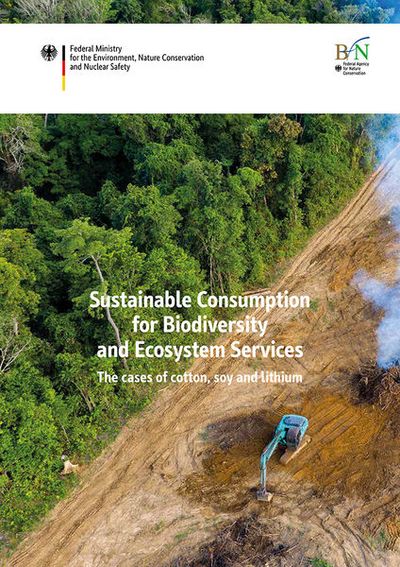Sustainable Consumption for Biodiversity and Ecosystem Services
High levels of consumption of goods and services have become a defining characteristic of modern industrial societies. Consumers often rely on resources that are cultivated, extracted and, in some cases, also processed in other parts of the world. In many cases, the production and extraction of these materials have severe impacts on biodiversity and ecosystem services and negatively influence peoples’ livelihoods.
This study aims to shed light on the impact of consumption on biodiversity and ecosystem services in the countries where raw materials originate. Taking Germany as an example of an industrialised society, the report analyses and illustrates global raw material flows from outside the European Union (EU) into Germany, exploring their environmental impact and considering measures for more sustainable consumption. Specifically, the analysis involves case studies on cotton, soy and lithium. Although German consumption serves as an example, the findings are also highly relevant for many other industrial nations – and in some cases even directly transferable.
The study addresses actors in the field of sustainable consumption on both the national and international level such as, for example, the One Planet Network or the German National Network on Sustainable Consumption. It primarily targets decision-makers who can guide us along the path towards sustainable consumption (and production) by fostering respective policies and measures.



